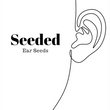
Firstly, lets start with what is stress?
Stress can be defined as any type of change that causes physical, emotional, or psychological strain. Stress is your body's response to anything that requires attention or action.
We have all experienced stress at some point in our lives and we often associate it at time when we perceive that the demands one is faced with, exceeds the ability for us to cope.
That said, not all stress is bad. In fact some 'stress' is essential for us to get things done.
What are the different types of stress:
1. Eustress: this is a positive stress that motivates us, and helps us get things done.
2. Distress: is not being able to cope, which leads to a decrease in our performance
3. Acute Stress: is an instant stress, occurs over a short period such as a deadline, exam, lost car keys or a broken arm. It's a short-term problem.
4. Chronic Stress: this stress occurs over a long-time and is often caused by circumstances out of our control i.e., covid-19, daily pressures or long-term illnesses.
Why stress. What’s the point of it?
Stress is the bodies defense mechanism; it helps us protect ourselves from perceived or imagined threats. For our ancestors, stress was a helpful motivator for survival, allowing them to avoid real physical threats. That's because stress makes your body think it's in danger, and triggers that “fight-or-flight” response. This 'stress' response causes the body to flood with hormones that prepare our systems to evade or confront danger.
Fast forward to modern man, We no longer run from Sabre Tooth Tiger's so our modern stress is now those 200 emails in the inbox, being constantly connected to digital devises and our busy lives. Whether its modern stress or physical threats, the response in the body is the same.
It then wont surprise you to know that stress can affect everything from our decision-making process, dietary choices, moods, digestion, cellular repair and even skin health. Think back to a time of stress in your life, it is often a period where you didn't look and feel your best.

What happens in our bodies when we are triggered by stress?
Your hypothalamus is the part of your brain that recognises stress. When you're stressed, your hypothalamus will send a signal to your pituitary gland. They both signal your adrenals to produce and release your stress hormones epinephrine and norepherine.
A little stress is a good thing. Too much, well, it can affect our overall health, from mood, sleep, libido, your immune system, blood sugar levels and appetite. It’s also terribly taxing to your adrenal glands and micronutrient reserves. With prolonged stress, your adrenal glands have to work hard to keep up with the demand of being constantly engaged, which can fatigue them and lead to that 'tired and wired' feeling and ultimately adrenal dysfunction and burnout.
Ultimately, in this stressful world we live, we are all experiencing some level of chronic stress. But we can put practical measures in place to bring balance back to our lives and calm down our nervous system.
What can we do to help manage our day to day stress levels?
If you haven't read our earlier blog on the Vagus Nerve, head over now to read about how tapping into this incredible nerve can help restore the body to homeostasis (balance).
Our Seeded Top Tips you can do right now!
1. Tap into your Vagus Nerve.
2. Use your Seeded Ear Seeds and plant a seed on the following acupressure points.
- Shen Men
- Kidney
- Point Zero
- Heart Point

2. Spend time each day doing activities you enjoy
3. Practice deep belly breathing and meditation.
4. Look at your diet. Caffeine, sugar and refined foods stimulate more stress in the body, so start eating the rainbow! Introduce foods that are water rich, nutrient dense and high in fiber. Supplements such as B-Vitamins, Magnesium, Vitamin-C and Antioxidants have all been shown to help the body and our nervous system during times of stress.
5. Get plenty of sleep! Sleep is essential for our bodies regeneration. Getting adequate quality sleep is the best way you can keep your stress levels in check and help the body stay in its 'rest and digest' mode, rather than always in 'fight or flight'.
6. Adaptogenic herbs. Sadly, the modern world means we can't avoid ongoing stress from long hours at work, traffic, financial worries, and health issues. While we may not be able to avoid stress entirely, We can implement self care to minimise stresses impact on our health. Adaptogens are fantastic at naturally helping keep the body in balance, they literally help the body “adapt” to stress!
- Ashwagandha helps with inflammation and calms the mind
- Macca is a superfood that helps support hormone production when your body is under-producing hormones. Great for a libido boost!
- Ginseng is a powerhouse, it helps provide us with a natural boost, and assists the body’s stress response by helping regulate the HPA axis (gut-brain connection)
- Rhodiola is a great choice for balancing the secretion of cortisol during times of stress
- Eleuthero has a host of benefits and contains compounds that support the body’s response to fatigue.
In your health. Seeded Ear Seeds x x
For more wellness tips, please check out our other blog posts.

